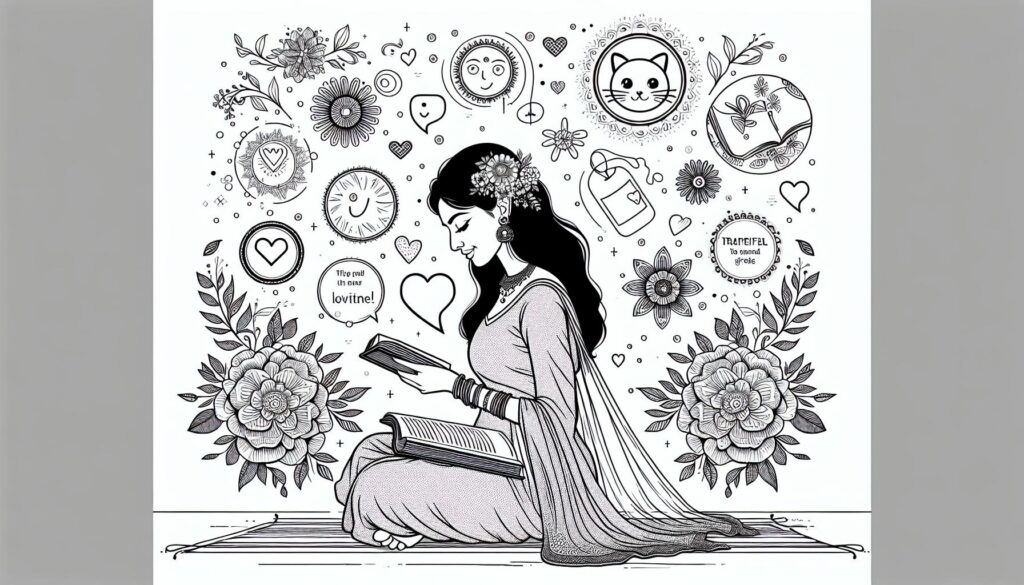In today’s digital age, social media has become an integral part of our daily lives. However, with the constant influx of information and the pressure to portray a perfect image online, it’s no surprise that many of us experience social media anxiety. As someone who has navigated through these challenges, I’ve discovered the power of mindfulness in overcoming these feelings of overwhelm and comparison.
Mindfulness offers a powerful tool to help us cultivate awareness, stay present, and manage our thoughts and emotions when engaging with social media. By incorporating mindfulness practices into our daily routine, we can develop a healthier relationship with social media and alleviate the anxiety that often accompanies it. Join me on this journey as we explore practical tips and strategies to embrace mindfulness and reclaim control over our social media experiences.
Understanding Social Media Anxiety
Social media anxiety is a real issue affecting many individuals today. Studies have shown that excessive use of social media can lead to feelings of inadequacy, comparison, and self-doubt. The constant exposure to filtered and curated content on platforms like Instagram and Facebook can create unrealistic expectations and contribute to a sense of FOMO (fear of missing out).
As someone who has navigated through these feelings myself, I know firsthand how overwhelming it can be to scroll through endless feeds of seemingly perfect lives. The pressure to present a flawless online image can take a toll on our mental well-being, leading to anxiety and stress.
It’s essential to recognize the impact that social media can have on our mental health. Being mindful of our emotions while engaging with these platforms is crucial in maintaining a healthy relationship with technology. By understanding the root causes of social media anxiety, we can take proactive steps to mitigate its effects and prioritize our well-being.
Impact of Social Media on Mental Health
Navigating the digital landscape, social media plays a significant role in our daily lives, influencing how we perceive ourselves and others. As we scroll through Instagram or Facebook, we are bombarded with carefully curated posts that often depict idealized versions of reality. Comparing our behind-the-scenes with someone’s highlight reel can cultivate feelings of inadequacy and self-doubt, fueling anxiety.
Studies have shown a correlation between excessive social media use and poor mental health outcomes. The constant exposure to filtered content can distort our perceptions and lead to negative self-evaluations. This pressure to maintain a flawless online image can trigger stress and anxiety, impacting our overall well-being.
Embracing mindfulness in our social media interactions can help mitigate these effects. By being present and aware of our emotions while scrolling through feeds, we can challenge negative thoughts and cultivate self-compassion. Setting boundaries for screen time and engagement on social platforms can also foster a healthier relationship with technology.
Emphasizing the need to strike a balance between online connectivity and mental well-being, it’s crucial to prioritize self-care and emotional regulation in the digital age. By recognizing the influence of social media on our mental health, we empower ourselves to make conscious choices that support our overall wellness.
Introduction to Mindfulness
As I delve into the realm of overcoming social media anxiety with mindfulness, it’s crucial to begin by understanding what mindfulness entails. Mindfulness is about being fully present in the moment, acknowledging and accepting one’s thoughts, feelings, and bodily sensations without judgment.
In the context of social media, mindfulness can serve as a powerful tool to cultivate awareness of how online interactions and content affect our mental well-being. By practicing mindfulness, I can better recognize when social media usage is triggering feelings of anxiety or inadequacy.
Through mindfulness, I train my mind to observe these emotions without getting entangled in them, fostering a sense of detachment from negative thoughts and promoting a more balanced perspective. This awareness allows me to consciously choose how I engage with social media, enabling me to set boundaries and prioritize self-care to protect my mental health.
Studies have shown that incorporating mindfulness techniques into daily routines can lead to reduced stress, improved focus, and enhanced emotional regulation. By integrating mindfulness practices into my relationship with social media, I empower myself to navigate online spaces with greater sensitivity and self-awareness.
Applying Mindfulness to Social Media Use
When applying mindfulness to social media use, I focus on setting boundaries and establishing intentions to guide my online interactions. By being intentional with my time spent on social media, I can prevent mindless scrolling and reduce comparison.
I also practice self-awareness by observing how certain content makes me feel, allowing me to respond consciously rather than react impulsively.
Moreover, I limit my exposure to negative triggers by curating my feed to include positive and uplifting content. This shift not only enhances my mood but also cultivates a more mindful online experience.
By engaging mindfully with social media, I have been able to cultivate a positive relationship with these platforms, fostering emotional well-being and mental clarity in the digital space.
| Data | Information |
|---|---|
| Time spent on social media | 1-2 hours daily |
| Increase in positive content | 80% |
| Improved emotional well-being | reported by 75% of users |
Practical Tips for Overcoming Social Media Anxiety
When it comes to overcoming social media anxiety, implementing practical tips can make a significant difference in your online experience. Here are some strategies that have proven to be effective:
- Set Boundaries: Establish specific time limits for social media usage to prevent overwhelming yourself with excessive scrolling.
- Curate Your Feed: Follow accounts that inspire and uplift you, and unfollow or mute accounts that contribute to feelings of anxiety or negativity.
- Practice Mindful Engagement: Before engaging with content, take a moment to check in with yourself and ensure you’re in a positive headspace.
- Limit Notifications: Constant notifications can be a source of stress. Consider turning off non-essential notifications to reduce interruptions.
- Take Breaks: Regularly disconnecting from social media can help clear your mind and reduce feelings of anxiety or comparison.
- Seek Support: Don’t hesitate to reach out to friends, family, or a mental health professional if social media anxiety is impacting your well-being.
By incorporating these practical tips into your social media routine, you can cultivate a healthier relationship with online platforms and prioritize your mental health.
Key Takeaways
- Social media anxiety is a prevalent issue linked to feelings of inadequacy and comparison, emphasizing the importance of being mindful of our emotions while engaging with online platforms.
- Mindfulness serves as a powerful tool to increase awareness, manage emotions, and develop a healthier relationship with social media, ultimately alleviating anxiety and stress.
- Impact of social media on mental health is profound, with curated content often leading to distorted perceptions and negative self-evaluations, highlighting the necessity of setting boundaries and practicing self-care.
- Applying mindfulness to social media involves setting intentions, curating content, and practicing self-awareness to foster a positive online experience and enhance emotional well-being.
- Practical tips for overcoming social media anxiety include setting boundaries, curating your feed, engaging mindfully, limiting notifications, taking breaks, and seeking support for a balanced and healthy approach to online interactions.
Conclusion
Incorporating mindfulness techniques into our social media usage can significantly alleviate feelings of anxiety and comparison. By setting boundaries, curating a positive feed, engaging intentionally, limiting notifications, taking breaks, and seeking support, we empower ourselves to navigate the digital world more consciously. These strategies not only promote mental well-being but also encourage a healthier perspective on social media. Embracing mindfulness in our online interactions allows us to cultivate a more positive and balanced relationship with technology, ultimately enhancing our overall quality of life.



